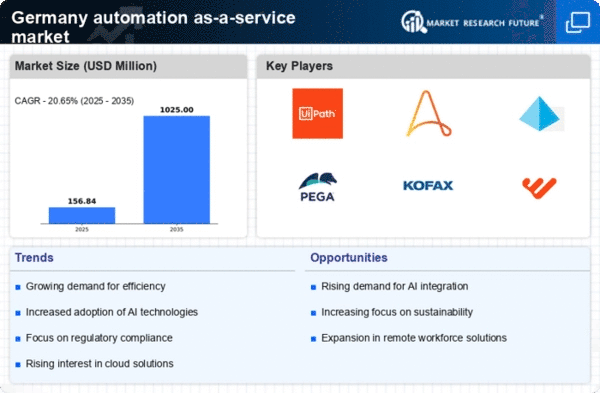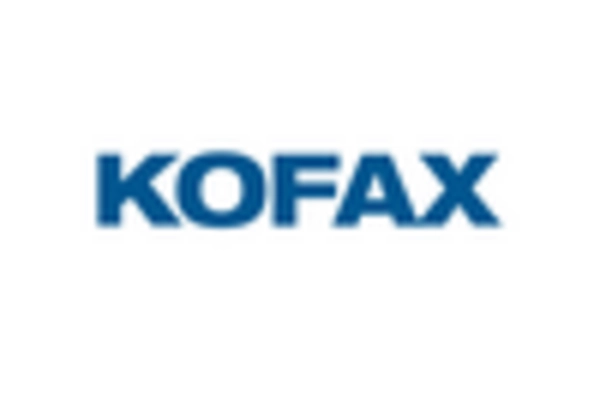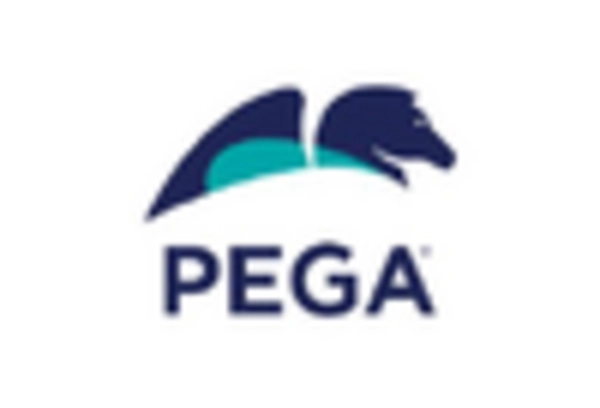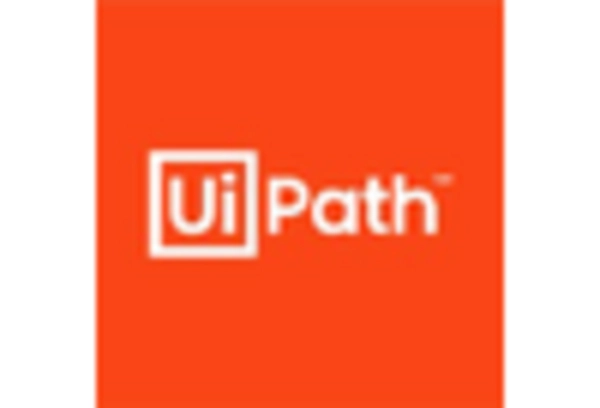Shift Towards Remote Work Solutions
The shift towards remote work is influencing the automation as-a-service market. As organizations adapt to new work environments, there is a growing need for automated solutions that facilitate remote collaboration and productivity. This trend is prompting businesses to invest in automation tools that support virtual workflows, enabling teams to operate efficiently regardless of their physical location. Data indicates that companies implementing remote work automation can see a 20% increase in employee productivity. This driver underscores the necessity for automation services that cater to the unique challenges posed by remote work, such as communication barriers and project management complexities. The automation as-a-service market is thus becoming essential for organizations aiming to maintain operational continuity and effectiveness in a remote work setting.
Integration of Advanced Technologies
The integration of advanced technologies such as artificial intelligence (AI) and machine learning (ML) is significantly shaping the automation as-a-service market. These technologies enable businesses to automate complex tasks, analyze vast amounts of data, and make informed decisions in real-time. The market is projected to grow as organizations increasingly adopt AI-driven automation solutions, which can enhance accuracy and speed in operations. Reports suggest that the incorporation of AI in automation can lead to a 40% increase in productivity. This trend reflects a broader movement towards digital transformation, where companies leverage cutting-edge technologies to optimize their operations. The automation as-a-service market is thus positioned as a vital enabler of this technological evolution, providing the necessary tools for businesses to thrive in a competitive landscape.
Growing Focus on Compliance and Security
In the context of the automation as-a-service market, the growing emphasis on compliance and security is becoming increasingly prominent in Germany. As businesses navigate complex regulatory environments, the need for automated solutions that ensure compliance with data protection laws and industry standards is paramount. The market is responding to this demand by offering services that not only automate processes but also incorporate robust security measures. Companies that utilize automation solutions can potentially reduce compliance-related costs by up to 25%. This driver highlights the importance of integrating compliance features into automation services, thereby enabling organizations to mitigate risks while enhancing operational efficiency. The automation as-a-service market is thus evolving to meet these critical security and compliance needs, ensuring that businesses can operate confidently in a regulated environment.
Rising Demand for Operational Efficiency
The automation as-a-service market experiences a notable surge in demand for operational efficiency. Companies are increasingly seeking solutions that streamline processes, reduce manual intervention, and enhance productivity. This trend is driven by the need to minimize operational costs and improve service delivery. According to recent data, organizations that implement automation solutions can achieve up to 30% reduction in operational costs. As businesses strive to remain competitive, the automation as-a-service market becomes a critical component in their strategic initiatives. The focus on efficiency not only aids in cost reduction but also allows companies to allocate resources more effectively, thereby fostering innovation and growth. This driver indicates a clear shift towards automation as a means to achieve higher efficiency levels across various sectors in Germany.
Increased Investment in Digital Transformation
The automation as-a-service market is witnessing increased investment in digital transformation initiatives. Organizations are recognizing the importance of adopting automation technologies to enhance their operational capabilities and remain competitive. This trend is reflected in the growing budgets allocated for automation projects, with many companies planning to increase their spending by approximately 15% over the next year. The focus on digital transformation is driven by the need to improve customer experiences, streamline operations, and foster innovation. As businesses embark on their digital journeys, the automation as-a-service market plays a pivotal role in providing the necessary tools and frameworks to support these initiatives. This driver indicates a robust commitment to leveraging automation as a key component of broader digital strategies, positioning organizations for future success.
















